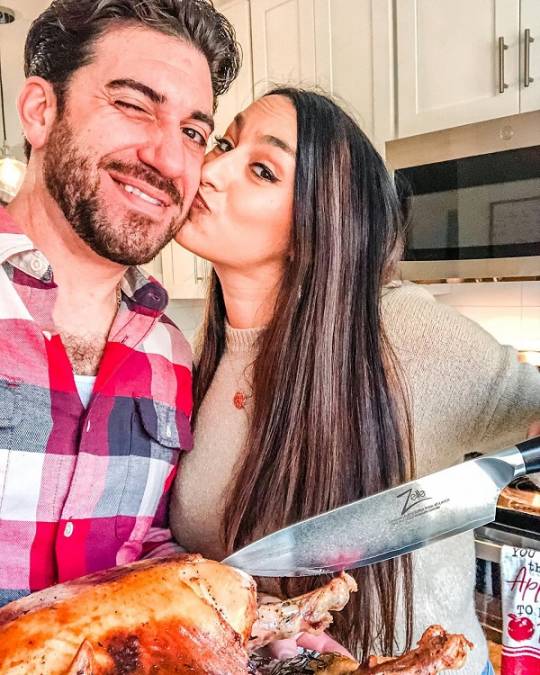Influencer marketing is becoming more impactful than ever as we enter into 2021. Companies of all sizes now turn to influencers to help get the word out about their products to their target audiences. Influencers, too, are doing a great job promising brand exposure and awareness. But the question is, how do you measure the success of an influencer marketing campaign? This is what we will be discussing in this article.
Measurements are critical to optimizing your marketing campaigns. When you determine and measure the key performance indicators (KPIs) for your influencer marketing campaign, you can see what’s driving the most impact and make adjustments. But this is not usually easy to accomplish. According to Linqia, 76% of marketers cited measuring an influencer marketing campaign’s success as their top challenge in 2018 and that has continued through 2020.
Let’s explore this subject a little further and see how you can measure the success of your influencer marketing campaign.
Table of Contents
What is Influencer Marketing?
Influencer marketing involves partnering with a popular influencer in your niche of interest, to endorse your services, or co-create content with the aim of increasing sales and brand awareness.
Influencer marketing is very effective because of the high levels of trust that influencers have built with their audiences. Endorsements from them act as some social proof of your brand’s potential to clients.
In fact, 89% of marketers find ROI from influencer marketing comparable to or better than other marketing channels. This explains why 18% spend about $100,000 to $500,000 per year on influencer marketing. A State of the Industry Report by Hubspot predicted that the influencer market would exceed $8 billion in 2020 based on 2018’s value of sponsored posts.
We already know that influencer marketing is the next big thing. But still, that doesn’t mean you go blindly because of FOMO. You need to make investment decisions based on influencer past performance and how that fits with your marketing goals. Here’s how:
89% of marketers find ROI from influencer marketing comparable to or better than other marketing channels.
Use Goals to Determine Influencer Marketing KPIs
It is hard to measure what you don’t know. That’s why your first step should be to establish your influencer marketing campaign goals. While at it, always remember that a successful influencer marketing campaign is one that exceeds the goals set at the start of the campaign. Campaigns that define SMART goals perform best. Your goals will determine how you measure results – which are critical for measuring ROI.
Influencer marketing campaign goals can be divided into three categories: content generation, direct response or brand awareness.
Content generation is a huge benefit of influencer marketing. Influencer-generated content (IGC) outperforms brand-created content in most advertising campaigns. High-impact content that your brand can gain from influencers includes:
- Curated images (Instagram In-feed Posts, Facebook)
- Short-form video (Instagram Stories, Instagram Reels and TikTok)
- Long-form video (YouTube and Facebook)
Brand awareness shows how well-known your brand is to potential consumers. It can be measured using the following metrics:
- Engagements: comments, likes, shares, sentiments, and mentions
- Social reach: subscribers, followers, views, and impressions
- Web traffic
- Press and media mentions
On the other hand, direct response refers to the specific action that a user takes in response to the campaign. The direct response can be measured using the following metrics:
- Sales
- Signups
- Downloads
- Subscribers
- Clicks
And it’s always important to weigh performance against cost. Depending on the goals of your campaign, cost metrics you will want to track for the campaign and for each influencer are:
- Cost per engagement (CPC)
- Cost per view (CPV)
- Cost per click (CPC)
Define Metrics to Measure Campaign Performance
Once you are clear with your goals, the next step is to develop metrics that will help you measure them. These metrics need to be specific, achievable, and time-bound. When defining metrics, you’ll notice that you might need more than one to track your progress.
As an example, sales are a gold standard for measuring return. But you can get a clearer picture of the ROI by looking at metrics like average order value, revenue, and cost-per-acquisition.
Many marketers cite conversions (54%), clicks (59%), and engagement as top KPIs as these drive the most short-term impact to a brand’s bottom line.
Choose an Influencer Tracking Platform
You can decide to do everything manually or use a tracking and management platform. We recommend the latter as it saves time, money, and energy. A tracking system lets you monitor how each campaign and/or influencer is performing in real-time.
Depending on the platform you pick, you may monitor metrics like engagement, ROI, and total media value. Some are more specific, allowing you to track campaigns based on metrics like revenue ROI, content pieces, conversion, cost per click, impressions, revenue generated, and so on.
There are so many tracking platforms available at various price points and levels of quality. Take the time to identify and demo one that’s effective and matches your business or work with an agency that is already experienced working with the industry leading platforms.
Measure the Influencers
Influencers are not created equal – some will perform better than others. Unless you have a tracking system in place to measure performance, you might never know who is delivering results and who isn’t. That’s where measuring comes in.
Choose a few influencers at the start of the campaign, and monitor their performance from the onset. Use metrics like engagement, conversion, and clicks to gauge their levels of performance. The best way to go about this is by assigning each influencer with:
- A custom UTM link (include the link to create one in google there)
- A unique discount code (optional)
If you want to create a vanity link, bit.ly is a great resource. This way, you’ll know where the clicks, engagements, or conversions are coming from. Campaigns that define SMART goals perform best. Let this principle guide you to picking well-deserving top-performers.
You can then add more influencers to the list and repeat the process. Run multiple short-duration campaigns and only retain the top-performing influencers. Bonus if you can create a brand ambassador program for your top-performing influencers that keeps them consistently engaged with your brand. This way, you’ll be able to optimize the long-term effectiveness of your influencer campaigns and realize fantastic ROI.
Work With an Agency
Measuring an influencer marketing campaign’s success is not an easy fit, especially when you have other duties to take care of. An in-house team can take care of this, but you may need an outside agency with experience and resources at their disposal.
Working with an agency can be an affordable and less time-consuming way to create and implement your influencer marketing strategy. A reputable agency will create a strategy, vet influencers, set and measure goals, and build a campaign on your behalf. It will also work with each influencer in the interest of your business. When you work with an agency, you:
- Save time
- Save money compared to hiring an in-house expert
- Scale your existing in-house strategy
- Find the right platforms
- Leverage their expertise and relationships
- Amplify the right content
- Get access to consistent reporting
- Leverage their resources
Conclusion
Measuring the success of an influencer marketing campaign can be simple when working with a few influencers. Larger campaigns require understanding the key metrics important to your brand and having influencer tracking and management tools for your in-house team. Brands that don’t have the capacity in-house can work with an agency to formulate strategy, execute the campaign, and measure the campaign’s success.
If you’d like to find out more about running an influencer marketing campaign, reach out to us about scheduling a consultation.






